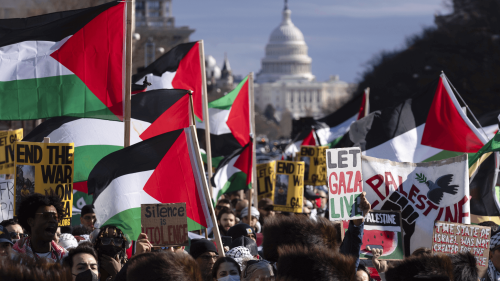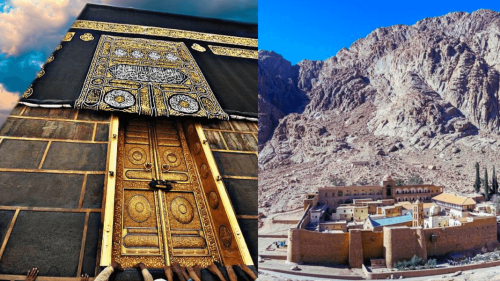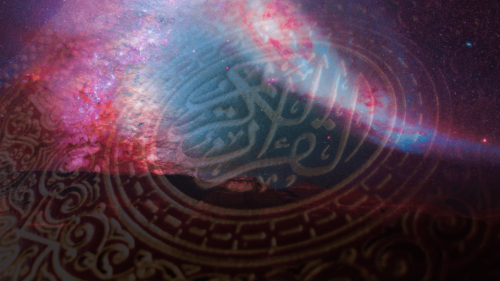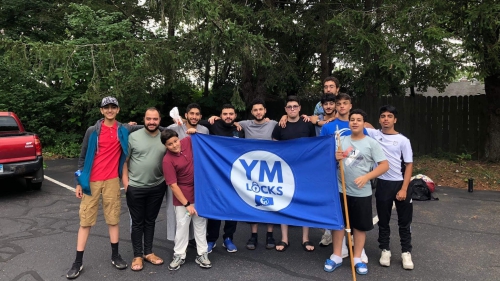Praying for Non-Muslims: An Islamic Perspective

As a Muslim, I feel in tune with the humanity (an-Nas), because the Quran unequivocally informs that the Muslims must recognize and appreciate their humanity orientation. We are "... created/evolved for the humanity ..." [Quran - 3:110]. Therefore, being inclusive in my orientation toward the humanity has been natural to me as a Muslim. Indeed, I have been particular in drawing attention of others toward this humanity-orientation, which should be reflected in our prayers and supplications as well. However, a few things provoked or motivated me to take a closer look at this issue of praying for non-Muslims from an Islamic perspective.
Last year I was invited by a Midwestern community to make presentations to two of their local mosques. I was gratified that the presentation "Seeking common grounds and building bridges" was well received. During the question/answer session, apparently, one peripheral subtopic became the focus of the session.
In the presentation, I emphasized the point that the feelings and communications of Muslims often seem to be self-centered as a community. We are bothered only when the sufferings, atrocities or hardships visit upon us, but we show little care in being in tune with the pain and agony of the rest of the humanity. One of the things I have observed is the lack of any inclusion of the humanity in our prayers. I urged that our prayers (dua) should be inclusive.
One participant raised the issue whether such prayer would be Islamic and consistent with the Sunnah (the Prophetic practice). It revealed a fundamental gap in many Muslims' understanding of this matter here.
Recently, the world watched the unfolding of the one of the worst human disasters before their eyes. Since the advent of cables, satellites, instant feeds, internet and so on, the disaster appeared unprecedentedly dramatic. Actually, there has been much worse natural disasters during the last half century, but due to technological and other factors, it could not play out like the way it is possible now in a "smaller world."
Indonesia was the hardest hit by this tsunami. Most of those who died in Indonesia were Muslims. It was not surprising that some of the Muslim relief organizations, who already have charitable and development works in those area, were the first to respond. The same ethos was not observed in the response of the governments of the rich Arab Muslim-majority countries. However, even though severely constrained in the post-9-11 environment, parallel to the rest of the world, major Muslim organizations in the USA (and elsewhere) came forward to express their horror and sorrow at the disaster and made the call to all to make a difference in the tsunami devastated areas. Several of these Islamic organizations also organized funeral prayers for the deceased Muslims in absentia and also urged Muslims to be inclusive in their prayer (supplication) in regard to the non-Muslim victims.
In a widely circulated statement, Council of American-Islamic Relations (CAIR) mentioned:
"(Washington, D.C., 12/27/04). ... CAIR today asked members of the American Muslim community and all people of conscience worldwide to offer humanitarian assistance and pray for the victims in Sunday's tsunamis in southern Asia.
The Washington-based Islamic civil rights and advocacy group also expressed condolences to the families of the victims.
"We are deeply saddened by the news of the tragedy in southern Asia," said CAIR Chairman Omar Ahmad. "We extend our sincerest condolences to the families of those killed and pray for the speedy recovery of those injured as a result of the earthquake. CAIR is working on identifying relief organizations that will provide aid to the affected areas."
In a separate statement, ISNA mentioned:
"ISNA joins the Muslim American community in mourning the loss of life in Southern Asia resulting from the earthquake of December 26, 2004. We urge the Muslim community to pray for those affected by the disaster ...."
Of course, some Muslim communities, especially in the affected areas, went much further. In one such community in Tamil Nadu, India, the local mosque opened up to accommodate, shelter and serve the victims, who were primarily non-Muslims.
Islam wants Muslims to have a humanity-orientation. It is very unfortunate that Muslims have made the use of the word "Ummah" exclusive for themselves. Thus, one observes Muslims regularly talking about or referring to the Ummah, meaning only the Muslims. However, the Quran also uses "ummah" for the humanity. "Mankind (an-Nas) was one single nation (ummah) ..." [Quran - 2:213] Due to such exclusive use of the word, many Muslims don't seem to be in tune with the humanity.
Therefore, both the increasingly inclusive approach on the parts of Muslims and opening up to the humanity like it was done by one mosque in Tamil Nadu are very encouraging. However, these days it seems whatever the Muslims do, some people are dissatisfied or disgruntled. If some Muslims say that they are against democracy, then they are regarded as uncivilized and undemocratic. If some of them like democracy, or consider democracy to be compatible with Islam or even required by Islam, immediately some secularist critics would charge that to support democracy is to go against Islam. Similar is the case with the inclusivist approach among Muslims. If they are not inclusive, they are criticized that these people are self-centered, caring only about their fellow Muslims. If they do call for inclusion of non-Muslims in their prayers and humanitarian efforts, they are criticized by some so-called rationalists/secularists that such inclusiveness is against the teachings of the Quran.
For example, one such atheist cited the following verses from the Quran to make the point that praying for non-Muslims is prohibited by the Quran.
"Nor do thou ever pray for any of them that dies, nor stand at his grave; for they rejected Allah and His Messenger, and died in a state of perverse rebellion. [Quran - 9:84]
"It is not fitting, for the Prophet and those who believe, that they should pray for forgiveness for Pagans, even though they be of kin, after it is clear to them that they are companions of the Fire. [Quran - 9:113]
He posed the following question: "If it was NOT fitting for the Prophet himself to invoke (Allah) for forgiveness of pagans, by what 'due diligence' and reliance on nothing but 'facts' did Dr. Farooq conclude CAIR's call for prayer included non-Muslims, while it was still an 'Islamic' prayer?"
It also seems that such challenge has caused some Muslims to be at a loss, as a moderator of one of the online forums, where the above question was posed, mentioned: "I always, thought it is okay to pray for non-Muslims. M. raised a fair question. ... As a believer and as a Muslim, whenever I pray, I pray for all. That is my teaching from my parents and from religious teachers. Even the Imam from local mosque once related that only God can decide about the ultimate fate of all human beings - irrespective of their religious affiliations." He sought some clarification from me in response.
Both the questions posed by my atheist friend and the unsettled feelings of some of my fellow Muslims necessitate that we further probe into the relevant issues. I should mention here that Muslims should always continuously scrutinize their understanding and beliefs in a self-critical manner. Also, instead of just adhering to a faith, in the form of a tradition and culture, which is primarily received from our parents, elders and those to whom we turn to for religious knowledge, it is vitally important that we approach Islam and the life with an urge for acquiring the relevant critical knowledge and understanding.
Let us now examine the issue whether such inclusive approach to prayers (supplications) is unislamic and inconsistent with the Quranic teachings and prophetic legacy. A few pertinent observations, however, before we proceed. These observations may not be of importance to those who are atheists and thus deny any divine power or revelation. Also, in studying such matters, one should keep in mind the following. (a) No Quranic verse should be taken in isolation from the totality of the Quran. (b) The contexts of the revelation (shaan-e-nuzul) must be taken into account in interpreting any specific verse.
Verse 9: 80 and 9:113 from Surah at-Taubah:
Verse 9:80 relates to the Munafiqeen (hypocrites), who undermined Muslims by working and conspiring with the Mushrikeen (pagan/polytheists). The Munafiqeen were particularly dangerous, because they were insiders to the Muslim community. Verse 9:113 relates to the Mushrikeen. Both the cases and their contexts are presented below.
It is important to keep in mind the general background of Surah at-Taubah, which deals with the issue of the relationship between Muslims and those Mushrikeen from among the Makkan Quraish and the treacherous hypocrites from among the Madinians and the desired attitude of Muslims toward them. These Mushrikeen and Munafiqeen have not only conspired against the nascent community of Muslims, but they had a bloody campaign to militarily vanquish the community. They used all the cunnings, machinations, and power to resist and overcome the emergence of this nascent community.
These are the Mushrikeen, who broke a treaty that they themselves humiliatingly imposed on Muslims. In the very first verse of this Surah, Muslims are commanded to publicly proclaim their freedom from the treaty that the Mushrikeen imposed on them originally and now bent on breaking it unilaterally. [Quran - 9:1] Muslims were also reminded that such freedom from the treaty did not involve those Mushrikeen, who have not broken the treaty or aided the adversaries of the Muslim community. Muslims were commanded to strictly uphold treaty with everyone, including those Mushrikeen who do not cause any aggression or injustice. [Quran - 9:4] It is against these Mushrikeen, Muslims were commanded to fight against with might and decisiveness. [Quran - 9:5] Even then, if any among the combatant Mushrikeen seek asylum from the Muslims, it must be granted, and they are to be escorted to where they can be secure. [Quran - 9:6] These prejudiced Mushrikeen honored neither any kinship nor any covenant. [Quran - 9:8]
Muslims were also clearly reminded about the context of this confrontation. These people breached a treaty, plotted to expel (and even kill) the Prophet, and initiated the aggression against the Muslims. [Quran - 9:13] These are the rhetoric of war. There is no weakness, compassion or vacillation in this context. Those who seek to vanquish Islam and Muslims would be resisted vigorously and steadfastly - subject to the Islamic morals and restraints that are to be upheld, even during adversity. Even family members and kins, who join the combative Mushrikeen, are not to be taken as patrons, guardians and trustees (in regard to the collective interest of the community). [Quran - 9:23] Islam does not wish to vanquish these hateful Mushrikeen. It exhorted the Muslims to confront them until they are subdued or they make peace. [Quran - 9:29]
Then, in the same context, the Munafiqeen (hypocrites) - who identify themselves as members of the Muslim community, but actually work and conspire with the combative Mushrikeen - are dealt with. After that it returns to the issue of the Mushrikeen and exhorts the Muslims to fight against the Mushrikeen and the Munafiqeen, who threatened and assaulted to vanquish the nascent community. [Quran - 9:73] The Prophet, as a symbol of compassion, prayed for even these people, [Quran - 9:80] until God made it clear that he should not do so - i.e., either offer funeral prayer for them or stand at their grave. [Quran - 9:84]
Let's revisit that verse. "Nor do thou ever pray for any of them that dies, nor stand at his grave; for they rejected Allah and His Messenger, and died in a state of perverse rebellion. [Quran - 9:84]
The next few verses continue to deal with the Munafiqeen, interspersed with verses exhorting the Muslims, never to feel weak and resigned.
Then comes the Quranic verse 9:113. From the preceding elucidation, it should be clear why the Prophet or the believers might not pray for forgiveness of those combative Mushrikeen who have demonstrated through their public actions that they harbor hatred and animosity to the extent that they cannot tolerate Islam and Muslims and would do anything to see them vanquished. Even without any specific verse in this regard, the implications naturally follow as to why, Muslims might not pray for anyone who fights Islam and Muslims unjustly, and then dies in that condition without any repentance. However, the scope of 9:113 is a little broader, as some hadith indicate that it was in the context of the Prophet's uncle, who on his death bed refused to embrace Islam. Thus, this verse applies to both the combative Mushrikeen and those who die consciously and insistently rejecting Islam and adhering to "shirk" (polytheism). This is in view of the Quranic verse that says that God is forewarning the humanity that he may or may not forgive any and all sin at his discretion. However, one sin he WOULD NOT forgive, if the sinner dies in that condition without repentance: that sin is "shirk" (associating others with God). [Quran - 4:48]
Thus, in the context of Surah at-Taubah, verse 9:113 pertains to those through whose actions (unjustly fighting Islam and Muslims or insistently rejecting the truth in favor of "shirk", i.e.), "it is clear ... that they are companions of the Fire." [Quran - 9:113]
In the very next verse [Quran - 9:114], it further clarifies using the specific example of the Prophet Ibrahim, who initially prayed for forgiveness for his father, due to a promise. However, once his father's enmity toward God and the truth became manifest, he desisted.
Now let me summarize some of the pertinent aspects.
1. These verses about prayers are applicable to two groups of people: (a) those who confronted and combated Muslims as was during the time of the Prophet and the Makkan Quraish; (b) those who consciously and insistently embrace "shirk" or polytheism, which the Quran declares as one sin, which God has forewarned that he will not forgive (examples: Abu Talib, the Prophet's uncle and the father of the Prophet Ibrahim).
2. The two specific cases (the uncle of the Prophet Muhammad and the father of the Prophet Ibrahim) may have a further ramification. Prophets are sent as a divinely chosen and mandated deliverer of good news and warning. They themselves are also the bearer of HUJJAT (proof/evidence of their divine reference) for the humanity. When people are directly or individually presented with the truth and an invitation toward truth by a Prophet, if such invitees show defiance or insistence in upholding their polytheism, especially on the death bed, then God has already forewarned about the lack of forgiveness for this specific matter. However, this may not apply to just any ordinary person or persons, who are not Prophets, presenting the truth and the invitation. This is because no non-prophets are the bearers of such Hujjat.
3. The specific verses from the Quran and some of the Hadith pertain to limitations on praying for "forgiveness" (another word, salvation) for those who have embraced, especially defiantly and insistently, polytheism (shirk).
It is only as regards those who fought against you on account of religion, and have driven you out of your homes, and helped to drive you out, that Allah forbids you to befriend them. And whosoever will befriend them, then such are the wrong-doers.) [Quran - 60:8-9)]
Thus, the two categories of Mushrikeen for whom the Prophet and the believers have been asked not to pray are of the type who have caused injustice and aggression against Muslims. [Note: All such matters also assume that Muslims themselves are not aggressors against or unjust toward other people.]
It should be clear now based on this survey of the relevant Quranic verses that not only that there is no limitation on showing general goodwill toward all human beings, but also there are specific and elaborate guidance for being empathic toward the entire humanity.
First is the rule of Non-Hostility. Muslims cannot harbor any hostility or ill-feeling toward anyone who do not practice oppression (zulm) against anyone, Muslims or non-Muslims. "Let there be no hostility except against those who practice oppression." [Quran - 2:193] [Note: Muslims are to take a decisive stand against fellow Muslims too, if the oppression or injustice is caused by such Muslims.]
Secondly, there is no permanent enmity (or friendship, for that matter) from an Islamic perspective. God willing, enmity can turn into friendship, for which Muslims need to make a persistent effort. "It may be that God will grant love (and friendship/amity) between you and those whom ye (now) hold as enemies." [Quran - 60:7]
Thirdly, beyond just harboring positive feeling toward the rest of the humanity, the Quran categorically removes any lingering confusions in the minds of any Muslim or non-Muslim that, for anyone thinking otherwise, Allah wants us to be kind and just toward the rest of the humanity.
Allah does not forbid you to deal justly and kindly with those who fought not against you on account of religion and did not drive you out of your homes. Verily, Allah loves those who deal with equity. [Quran - 60:8-9)]
Allah does not forbid me or my fellow Muslims to be just and kind to others, who have not fought or shown hostility toward the Muslims. Those who are familiar with the Quranic discourse and rhetoric - for example, where an infant girl buried alive being asked by Allah on the Day of Judgment as to for what crime was she buried alive [Quran - 81:8] - ought to understand that this is a special way of highlighting or accentuating the importance of being kind and just to the humanity in general. However, what kind of kindness are we talking about, if we can't be inclusive about others in regard to our prayers!
As explained above, the specific limit about prayer is related to pleading for "forgiveness" or "salvation" of those who have been manifestly hostile toward Islam and Muslims and caused aggression and injustice, or those who have embraced "shirk" defiantly, in specific cases, even in presence of a Prophet. For all others, being "created for mankind" [Quran - 3:110] should inspire us to be inclusive, including in prayers. My neighbors include Christians, Jews and who knows what. So are my colleagues at work: among them are atheists, agnostics and everything else. Among these non-Muslim friends and colleagues, I have found some of the most kind, thoughtful and caring people. I would like them to be Muslims too. But if they are not, that is between them and our Benevolent Creator, to whom we all will return some time. As far as we are concerned on this planet earth, I do pray for them, for their welfare and success in this life and beyond.
I don't know any of those Tsunami victims personally. But as human beings they are my brothers and sisters in humanity, just like I have also many brothers and sisters in Islam.
So, in what way the call for prayer (supplication) of CAIR, ISNA or other Muslim organizations or individuals are unIslamic or contrary to the teachings of the Quran? Well, conscientious readers and minds can determine for themselves.
The tsunami victims, representing people from all walks of lives from so many faiths and countries, were victims of a natural disaster, one of the worst in the memorable history. The non-Muslim victims in general had nothing to do with the conflicts or hostility of the type indicated in those verses and hadith. Also, it was not like that a Prophet presented to them the divine message and they "rejected" the message. The whole context is so different that only someone thoroughly unfamiliar with the Quran can reach the conclusion that such prayers are unislamic. Even if some Muslims think so, had they understood the pertinent issues in the holistic perspective of the Quran and the Prophetic legacy, they would not have fallen into such confusion. Just as I pray for my beloved brothers and sisters in Islam, so do I for my fellow brothers and sisters in humanity. I can't expect from others, but I hope my fellow Muslims would join me in the following prayer.
O our Rabb - Creator, Sustainer and Nourisher of the entire universe - it is you whom we worship and to you we turn for help and guidance. O our Benevolent Rabb, you have identified the entire mankind as one, single ummah. Pour in our heart love and empathy toward the humanity. O Allah, remove mutual hatred and bigotry from all of us and increase amity and empathy among the people around the world. O Allah, bless and guide me in this world and grant me your mercy in the hereafter. O Allah, bestow the same upon my dear ones among my family, relatives, friends and neighbors and upon the entire humanity. Of course, anyone who does not care about your mercy, blessing and guidance (or even deny or defy you), you are the most just and compassionate.
The author is an associate professor of economics and finance at Upper Iowa University. Homepage
The author welcomes volunteers who would like to translate this piece into their native language
Email: [email protected]
Related Suggestions
THANK YOU
PEGGYLEE
Salaam
Salam alaikum
(Peace and Mercy of God be upon all of you)
Subhana'Allah, this article was one of the best articles I have ever read. The author covered beautiful point of human relations and compassion for our fellow human being. Thats exactly how the development of Ihsan (Beauty) works, when we eradicate the hate and anger we have in our hearts, surely May Allah give us all a pure heart. Allah is Most Merciful, my brothers and sisters, so therefore Allah loves Mercy, either u showing to Humans or Animals, its still an attribute one must try to utmost have. Prophet (Pbuh) was given a beautiful name of Rahmatillill Alamin (Mercy to HUMANITY). We must not get confused by whats happening around the world and the detrimental knowledge that is being revolved in our communities due to movements and idealogies and lack of true wise religious scholars. Our beloved Prophet (Pbuh) used to make dua at nights when his tears would come out and out flushing his beautful cheeks, for what, for all of Us, cause we would not be Muslims without Rahmatillal Alamin, and this world would still be barbaric. When his enemies came to him regarding drought, the Noble messenger (pbuh) made invocation for them. Prophet Muhammad (pbuh) when being persecuted used to invoke 'O Allah, forgive them since they do not know'. Islam came to perfect Morals and Characters and establish the society from these type of characteristics.
" These verses about prayers are applicable to two groups of people: (a) those who confronted and combated Muslims as was during the time of the Prophet and the Makkan Quraish; (b) those who consciously and insistently embrace "shirk" or polytheism, which the Quran declares as one sin, which God has forewarned that he will not forgive (examples: Abu Talib, the Prophet's uncle and the father of the Prophet Ibrahim)."
In my opinion Dr Muhammad these few lines are enough to answer the antagonists about Surah Tauba Verses 84 and 113. Why go the length and try in so many places to be apolegetic?.
We muslims are encourage to pray for all humans for good in this world and the hereafter. The buck stops at that person who insists in peversion and wanting destruction of the world out of their selfish motivations and denials of Allah's signs and ALSO DIE in that process. Yes, this decree has worked with those amongst the Munafiqun and Mushriks during the Prophet (SAW)'s time and will equally continue to work with the present day mushriks till the last day in sha-Allah.
Peace.
this article. I will share it with my Christian family and insha
Allah it will make them see Islam in a different way and God
willing accept me as a Muslim.
Excellent article! Islam should be a positive force for the entire creation!
I appreciate the fact that this brother corrected a common misconception among muslims, what I do not like is the tone in which he did it and this goes to anyone who teaches islam. Do not use this accusitary tone and give examples of where you discovered this ignorance. Just write what you want to say without insulting the person you are correcting. I am sick and tired of learned persons insulting the other when they are correcting them. Be polite. There are alot of new muslims in this muslim ummah and so we will see more ignorance which has to be corrected, but please do so politely.
If you hide the faults of your brother, Allah will hide yours.
Please look at how the Prophet addressed the non-muslims in his letters to-- Heraclius of Rome, Najashi of Abyssinia, Khosroe of Persia & Maqauquis of Egypt. He says, "Peace be upon him who follows the Guidance" but not "Peace be upon you" which he said in his letter to Mundhir, Governor of Bahrain.
May Allah have mercy on you and guide you aright in your thinking.

















